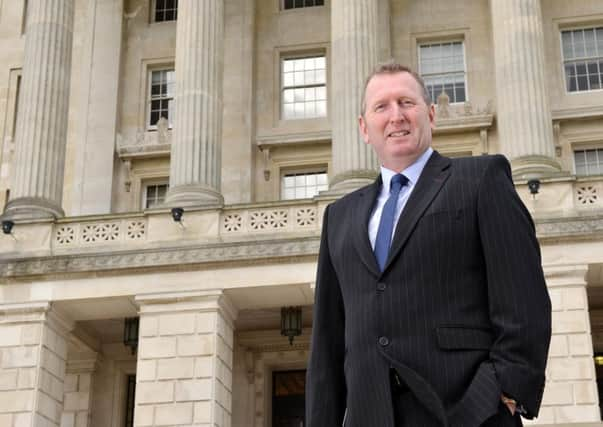We thought at first we were fighting a just war - Iraq veteran


Captain Doug Beattie, who was a Regimental Sergeant Major in the Royal Irish Regiment, said many soldiers are “afraid” to say they were involved in the invasion.
The 50 year old from Portadown in County Armagh said it helps soldiers if they have fought a “just war” that makes their nation proud - and in 2003 he said troops were convinced they were embarking on a “just and noble campaign”.
Advertisement
Hide AdAdvertisement
Hide AdBack in December 2002 when Mr Beattie was told he would be part of the Iraq invasion, he said soldiers were “in absolutely no doubt whatsoever” that Saddam Hussein’s regime had weapons of mass destruction and was intent on using them.
But he said it became obvious very quickly that the enemy were “a wretched bunch”.
Mr Beattie, now an Ulster Unionist Party MLA, was responsible for prisoners of war and said: “Wretched - as in their clothes were in tatters, they had no food, there was nobody commanding them. There was no leadership.
“They were a ragtag bunch who weren’t up for a fight. And I remember taking these prisoners and just how happy they were to be prisoners, and that stuck with me.”
Advertisement
Hide AdAdvertisement
Hide AdHe told the Press Association: “I think the biggest legacy for many soldiers in truth, is the mental scars of the conflict, those mental scars that they bring back. And you know, there’s something about fighting a just war when the nation is proud of you for doing that, which helps people.
“But when you fight a war where the nation is now pointing the finger and saying ‘wrong, illegal’, then that’s going to affect you even more. And I think the mental strains and the mental scars on many people who fought in Iraq are very prevalent now.
“And many soldiers are afraid to raise their head and say ‘I fought in Iraq’ because it’s viewed on as something not good.”
Reflecting on the war, Mr Beattie said: “It becomes clear that the government of the time, the security services, the Foreign Office, our Home Office, were all part of a big deception.
Advertisement
Hide AdAdvertisement
Hide Ad“And our military leaders were too eager to please and they allowed themselves to be taken to war even though they didn’t have the capacity or the capabilities or the very most basic of equipment.
“We didn’t have body armour, we didn’t have clothing, we didn’t have desert boots, we didn’t have ammunition for some of our weapons systems, our signals equipment was old and didn’t work.”
Mr Beattie spoke of the kindness of British troops, saying: “The compassion and gentleness shown by my soldiers while looking after the Iraqi prisoners of war was incredible and I think people miss that. They think that we go in and we fight a war and we don’t have that level of compassion and gentleness but I’ve seen it in spades.”
He said troops dug holes for dead Iraqi soldiers and buried them with their heads facing Mecca, Islam’s holiest city.
Advertisement
Hide AdAdvertisement
Hide AdMr Beattie was awarded the Queen’s Commendation for Bravery, and he pointed out that it was for saving the lives of enemy fighters.
“We thought it was a just and a noble and a legal conflict. And there was nothing, absolutely nothing, would have indicated anything other than that. But I think very quickly, within weeks, maybe a month, we realised that there were no weapons of mass destruction,” he said.
After Iraq, Mr Beattie went on to do three tours of Afghanistan and was awarded the Military Cross.
Speaking after the Chilcot Report was published, Mr Beattie said: “This report spreads the jam of blame across many people and organisations. Few involved in sending our armed forces to war in the Gulf emerge with credit. At worst they were party to an exercise in deception.
Advertisement
Hide AdAdvertisement
Hide Ad“I led soldiers into Iraq in 2003. We were short of equipment and woefully unprepared. We were left in no doubt that we were as likely to get gassed as shot or bombed. We trusted what our political masters told us. We were wrong to do so.
“Every time a politician cries wolf and we go to war on a false premise, it makes it that much harder to gain support for intervention in future conflicts where there really is no excuse not to.”